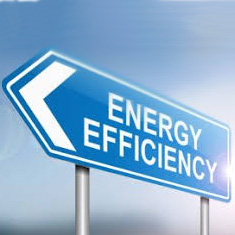Public Service Commission should set ambitious energy saving goals for power companies
Originally posted on August 9, 2019 by Drs. Cheryl Holder and Todd Sack in The Invading Sea.
 Public Service Commission should set ambitious energy saving goals for power companies. They would improve the environment and residents’ health.
Public Service Commission should set ambitious energy saving goals for power companies. They would improve the environment and residents’ health.
As physicians on the front line of public health, we know that energy efficiency reduces pollution, improves human health, and lowers energy costs.
That’s why we are deeply concerned that Florida’s power companies’ record on energy efficiency is weaker than that of fellow Southeast utilities.
And to add insult to injury, they have proposed even lower targets for the 2020-2029 period.
Every five years, the Florida Public Service Commission – a creature of the Florida Legislature and appointed by the Governor – convenes a process to set energy savings targets called the Florida Energy Efficiency Conservation Act (FEECA).
Setting strong energy savings targets for Florida utilities will help both to protect human health and deliver energy savings to Floridians, especially those who can least afford the power bills they’re seeing.
The goals utilities are proposing will effectively end the programs that help those who are most vulnerable keep their electric bills down so they can keep their homes at a safe temperature.
Thirteen states saved at least 1 percent of retail electricity sales through energy efficiency programs in 2017, according to the American Council for an Energy Efficient Economy. Why can’t we?
Reducing energy demand in buildings avoids the need to generate electricity and build power plants, thereby reducing the emission of greenhouse gases and other pollutants through the combustion of fossil fuels.
The air pollution caused by burning fossil fuels contributes to the incidence of cancer, chronic lung disease, heart disease and stroke. Deploying energy efficiency can help mitigate these health harms.Energy efficiency in buildings can also help alleviate respiratory ailments and asthma triggers.
Floridians could realize significant health benefits from ramping up utility energy efficiency programs. If utility energy savings targets increased to 1 percent of retail electricity sales, pollution avoided from efficiency programs could generate over $12 million in annual health benefits to Floridians. That would prevent hospital admissions due to respiratory and cardiovascular illnesses and avoid restricted activity and lost work days.
Investing in utility energy efficiency programs as part of a broader energy efficiency strategy could generate even bigger health benefits. Based on the total dollar value of health harms avoided from reducing energy consumption 15 percent in a single year, Florida would see some of the greatest health benefits.
In fact, these benefits place it among the top seven states nationwide. Tampa, Miami, Orlando, Jacksonville are ranked among the top 35 cities that would see the greatest health benefits from energy efficiency.
Energy efficiency is also a key tool for reducing energy burdens, the portion of a household income spent on utility bills that is often higher for low-income and rural residents. The national average is 3.5 percent, but half of the low-income households in Jacksonville, Tampa, Orlando, and Miami have an energy burden greater than 7.2 percent.
Energy efficiency can eliminate over one third of this burden, and strong utility energy savings targets can even guide these investments to those who need them most.
Florida can look to effective models in states such as Arkansas and North Carolina, where utilities meet electricity savings targets set by state regulators. FEECA is an opportunity for utilities and regulators to deliver meaningful environmental, health, and economic benefits to Floridians.
We urge the Florida Public Service Commission to stand up for consumers and to protect our public health by increasing energy savings targets for the state’s utilities.
***

Dr. Cheryl Holder

Dr. Todd Sack
Dr. Cheryl Holder is Co-Chair of Florida Clinicians for Climate Action and Dr. Todd L. Sack, a gastroenterologist, is a founding member of Florida Clinicians for Climate Action and a Board member of Physicians for Social Responsibility.
“The Invading Sea” is a collaboration of four South Florida media organizations — the South Florida Sun Sentinel, Miami Herald, Palm Beach Post and WLRN Public Media.

